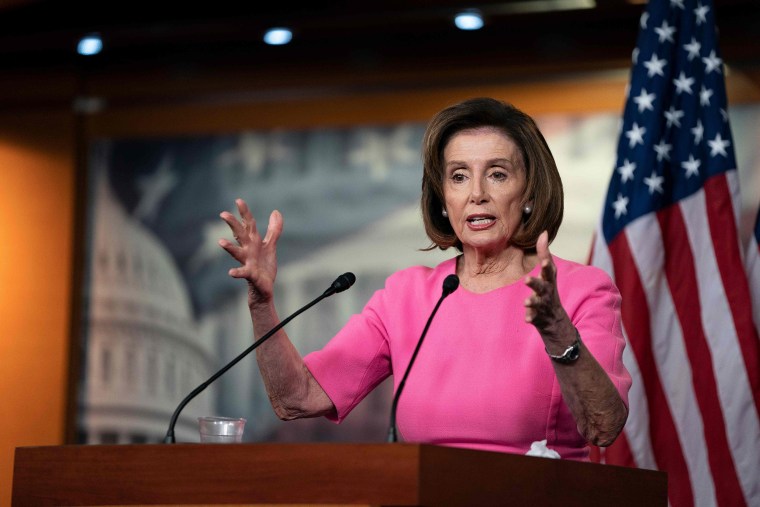It wasn't long after January's deadly insurrectionist attack on the U.S. Capitol when an obvious idea took hold: policymakers needed an independent commission, along the lines of the 9/11 Commission, to determine what happened and why.
As we've discussed, in theory, this seemed like a no-brainer. Eleven weeks after the assault, there's no shortage of questions in need of answers -- questions unresolved by last month's impeachment trial -- and an independent panel could both fill in the gaps and make policy recommendations to prevent related violence in the future. National polling showed fairly strong support for the idea.
With this in mind, House Speaker Nancy Pelosi (D-Calif.) recently presented a blueprint -- what was described as a "discussion draft" -- for a special panel. A month ago yesterday, Republican leaders denounced it.
This week, Pelosi told reporters that some GOP officials have been privately "receptive" to the idea of a commission, but reaching a bipartisan agreement has been impossible, at least so far. NBC News recently reported that the momentum behind the idea "has dissipated," and lawmakers are "growing increasingly pessimistic that an agreement on establishing such a commission can be reached."
If that was Plan A for getting answers about the Jan. 6 riot, Politico reported overnight on Plan B.
Seven House committees launched a sweeping investigation Thursday into the federal government's handling of the Jan. 6 assault on the Capitol — fueled by thousands of Donald Trump supporters who backed his false claim that the 2020 election was stolen — and the intelligence and security breakdowns that preceded it. In letters to 16 agencies across the Executive Branch and Congress, the panels asked for all communications sent between agency officials regarding Congress' Jan. 6 session.... The requests demand all relevant documents and messages from Dec. 1, 2020, to Jan. 20, 2021.
In case this isn't obvious, while it's common for congressional committees to make requests for documents like these, it's very unusual for seven congressional committees to work in concert like this on a single project.
In this case, the House panels are Judiciary, Oversight, Armed Services, Administration, Appropriations, Homeland Security, and Intelligence. But if that list sounds long, consider who received document requests yesterday:
- White House Chief of Staff Ronald A. Klain
- National Archives and Records Administration Archivist David S. Ferriero
- Attorney General Merrick B. Garland
- FBI Director Christopher A. Wray
- Department of Defense Secretary Lloyd J. Austin III
- National Guard Bureau Chief General Daniel R. Hokanson
- Department of Homeland Security Secretary Alejandro N. Mayorkas
- Office of the Director of National Intelligence Director Avril Haines
- Department of the Interior Secretary Deb Haaland
- U.S. Park Police Chief Pamela A. Smith
- District of Columbia Mayor Muriel Bowser
- Metropolitan Police Department Acting Chief Robert J. Contee III
- Architect of the Capitol J. Brett Blanton
- Acting House Sergeant at Arms Timothy P. Blodgett
- Senate Sergeant at Arms and Doorkeeper Karen Gibson
- U.S. Capitol Police Acting Chief Yogananda D. Pittman
The full text of each of the letters is online here.
As for the fate of a possible Jan. 6 commission, Politico's report added, "Pelosi told reporters she is still seeking a bipartisan approach, but she hinted at what was to come: 'We have other, shall we say, paths.'"

